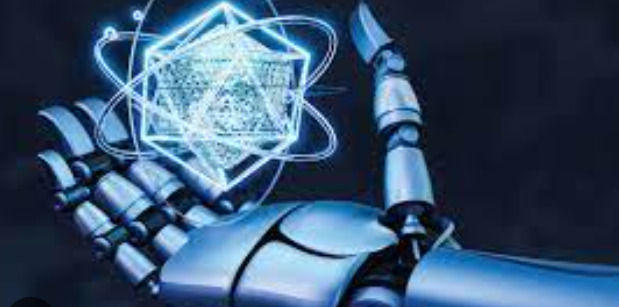The integration of AI and Robotics has an enormous impact on many industries. It is also transforming the way businesses operate. AI-powered robots can automate tedious tasks or improve operational efficiency. In this article, we will focus on how AI and robotics affect the manufacturing industry.
The intersection of AI and Robotics
The combination of artificial intelligence (AI) and robotics takes place in several ways. Here are some of them.
PROGRAMMING ROBOTS WITH MACHINE LEARNING (ML) ALGORITHMS
This allows robots to learn how to perform specific tasks. With it, robots are able to acquire knowledge and skills, as well as adjust their behavior in real time based on sensor data.
Example: An industrial robot using ML to learn how to cut metal sheets to certain dimensions.
USING ROBOTS AS A PLATFORM FOR AI APPLICATIONS
Another way to integrate AI and robotics is by equipping robots with sensors and cameras. This allows them to collect data, which one can then use to train AI algorithms. In this way, robots become a tool for collecting and processing data that can be used to learn and develop AI algorithms.
Example: A warehouse robot that collects information about products on the shelves. It then uses this data to optimize the warehouse management process.
USING AI TO SOLVE PROBLEMS RELATED TO ROBOTICS
AI can help navigate robots in difficult terrain or identify and classify objects based on data from cameras and sensors.
Example: A rescue robot that uses AI to navigate difficult terrain and search for people injured in disasters.
Combining AI and robotics can bring many benefits. It makes robots more effective and allows them to interact with their environment in more intelligent and complex ways.
One application of the intersection of AI and robotics is manufacturing. Here robots can be programmed to perform complex tasks with greater accuracy and efficiency. By integrating AI into robotic systems, robots can adapt to changing conditions and learn from their experiences. This improves their performance over time. Now, let’s take a look at some use cases of artificial intelligence in manufacturing.
AI in manufacturing
FACTORY AUTOMATION
With AI, manufacturers no longer have to adjust equipment settings manually. What’s more, the technology allows them to detect any anomalies. The system tracks and monitors operations and then alerts technicians at a pinch. Another application of AI in factory automation is error reduction. Performing repetitive tasks can be tedious for a human. And fatigue is the cause of many mistakes. The thing about machines is that they don’t feel tired. Besides, this technology can be used in quality control.
A prominent example is the BMW Group. It uses AI-powered robots that inspect car bodies for defects using computer vision. They can make precise measurements to ensure the cars meet the company’s high standards. AI is transforming the manufacturing industry by providing better efficiency, productivity, and cost-effectiveness. Find out more about AI consulting.
WAREHOUSE MANAGEMENT
AI has the potential to automate various elements of warehouse operations. AI algorithms can analyze data to optimize inventory or delivery schedules. Data analysis also allows manufacturers to better plan logistics and monitor their warehouses.
AI can also help improve safety by monitoring and alerting workers of potential hazards. Moreover, warehouses are increasingly using robots to track, lift, move, and sort items. This can free up human workers to concentrate on more strategic duties. As we know, AI also enables demand forecasting. In this way, manufacturers can predict customer demand and stock up their warehouses in advance. This approach can minimize transportation costs and ensure adequate inventory levels.
PRODUCT DEVELOPMENT
AI can assist with product development by analyzing data and providing valuable insights. It can also help to speed up the process by automating some tasks. AI algorithms can analyze customer feedback, market trends, and product performance data. With it, manufacturing businesses make data-driven decisions and enhance their products or services.
Moreover, AI can also simulate product designs and test them virtually. It reduces the need for physical prototypes.
For example, Nike is using AI to design better shoes. They use a combination of AI and 3D printing to create prototypes quickly and test them virtually. This has allowed them to reduce development time and bring new products to market faster.
PREDICATIVE MAINTENANCE
AI helps predict when maintenance is needed by analyzing sensor data from machinery. It uses machine learning to detect patterns and signs of wear or damage. Maintenance teams are alerted to perform preventive maintenance before breakdowns occur.
General Electric (GE) uses AI for predictive maintenance in their aviation engines. They collect data from thousands of sensors and use machine learning to predict maintenance needs. This saves costs by reducing unscheduled maintenance and increasing engine reliability.
Conclusion
Robots play a significant role in the manufacturing industry. But powered by AI, they can make a difference in operating manufacturing companies. They can improve quality, reduce costs, and increase efficiency. As technology advances, we can expect to see more intelligent robots.
Read also more information



